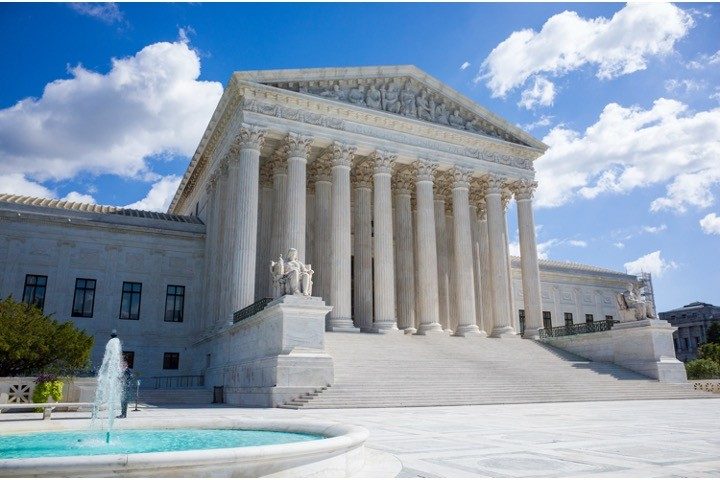
In a Zoom call with members of the Congressional Progressive Caucus over the weekend, President Joe Biden suggested he was considering backing enormous reforms to the Supreme Court in the wake of several decisions the Left found objectionable. Among the changes Biden is reportedly considering backing are term limits and an ethics code for the justices, which would include enforcement mechanisms.
Biden reportedly told the liberal congressmen:
I’m going to need your help on the Supreme Court, because I’m about to come out — I don’t want to prematurely announce it — but I’m about to come out with a major initiative on limiting the court. … I’ve been working with constitutional scholars for the last three months, and I need some help.
“There’s probably gonna be two more appointments to the court. There’s probably two people who are going to resign — uh resign, retire,” Biden said, referring to a possible Trump presidency. “Just imagine — if [Trump] has two more appointments on that, what that means forever.”
Reversal of “Immunity” Ruling
Biden also told the leftist lawmakers that he is considering pushing for a constitutional amendment to reverse the recent “immunity ruling.” The July 1 ruling said presidents should expect limited immunity from prosecution when exercising “core” constitutional powers.
Representative Alexandria Ocasio-Cortez (D-N.Y.) claimed that the immunity ruling represented “an assault on American democracy.” She later filed articles of impeachment against Justices Clarence Thomas and Samuel Alito.
In Florida, District Judge Aileen Cannon cited Thomas’ concurrence in the ruling while throwing out the classified-document case against Donald Trump.
Leftist court watchers have been banging the drum for such changes for some time now. Those drums have grown louder in the wake of recent court decisions, most notably the immunity ruling and the overturning of the Chevron deference, which allowed regulatory agencies to essentially fill in the blanks when laws were unclear.
Term limits, especially, have been on the mind of leftists especially since Justice Ruth Bader Ginsburg died in 2020, allowing Donald Trump to nominate conservative Justice Amy Coney Barrett.
What Could Biden Do?
But it’s not clear how much Congress can affect the court. Last summer, Justice Alito addressed the possibility of new ethics rules for the court:
Congress did not create the Supreme Court — the Constitution did. I know this is a controversial view, but I’m willing to say it. No provision in the Constitution gives them the authority to regulate the Supreme Court — period.
When pressed on whether other justices felt the same, Alito stressed that he was speaking only for himself:
I don’t know that any of my colleagues have spoken about it publicly, so I don’t think I should say. But I think it is something we have all thought about….
If we’re viewed as illegitimate, then disregard of our decisions becomes more acceptable and more popular. So you can have a revival of the massive resistance that occurred in the South after Brown.
Others claim court reforms are not just a good idea, but essential.
Take Back the Court Action Fund is a liberal group claiming claims the Republicans have stolen “the Supreme Court to obstruct progress and undermine democracy.” Said Sarah Lipton-Lubet, the group’s president:
Reforming this broken court is imperative — not just for protecting the hard-won rights of the last century, but for making any progress as a nation in the future. While ethics rules and term limits alone cannot fully restore balance and independence, [Biden’s] announcement is a watershed moment in the fight to take back the court.
Ultimately, Biden has far more to worry about than radically restructuring the Supreme Court. Whether he’ll be able to finish out his term and whether he’ll actually run in the coming November election, for instance. But his plans for the Court signal his radical intentions should he be elected to another term.


